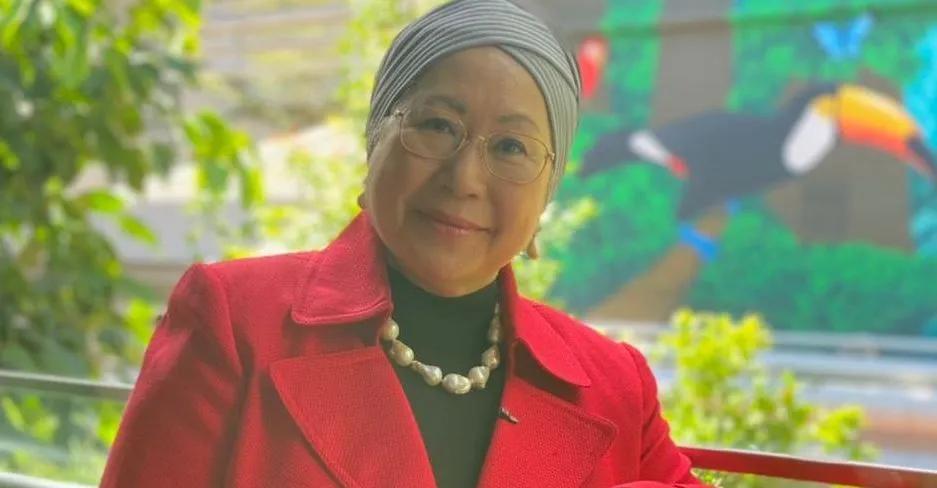The Climate Crisis: No More Talk, It's Time for Action
“The recent climate change report tells us, in the words of the United Nations Secretary-General, that this moment is ‘code red for humanity’.
“We have wasted 40 years arguing about whether the planet is sick. The pandemic is yet another indication that it is – and that we have played the most significant role in making it sick.
“My goal is for my fellow Malaysians to understand just how bad things are and to find ways to start to connect our choices with what is happening around us and make changes that will help planetary recovery,” says Dr Jemilah, 61, in a recent email interview.
Knowledge, she adds, needs to work in tandem with action.
“We all tut at the fact that our oceans are clogged with plastic yet are not putting pressure on food manufacturers to stop wrapping everything in it. We worry about CO2 emissions while it’s next to impossible to buy a car in Malaysia which isn’t petrol-driven. “The centre will help to connect research and learning with policy and will provide a platform to discuss what we can do collectively, as individuals, as families, as a nation, as a member of Asean, and as a part of the global community of nations to generate changes in our interactions with the planet.”
Many people know Dr Jemilah, an obstetrician and gynaecologist by training, as the founder of Mercy Malaysia, a medical and humanitarian aid organisation established in 1999. In 2009, she left Mercy to lead the Humanitarian Response Branch at at the United Nations Population Fund, staying until 2011. In 2014, she became the head of the UN World Humanitarian Summit Secretariat, and from 2016 to 2020 was the under secretary-general (partnerships) of the International Federation of Red Cross and Red Crescent Societies.
Before she took on her current position, she served as a special advisor on public health to the prime minister in Malaysia.
“For many years, I have been troubled by the fact that humanitarian and development workers, including myself, were treating the symptoms and not the causes of the dire situations we are confronted with.
“Whether it is conflict, disaster or disease outbreak, there are root causes that need to be addressed. The pandemic offered a pause and a moment of serious reflection for me.
“If we seriously want to prevent the next pandemic and address the climate crisis, if we want to turn the corner on a number of issues that ail our planetary home, we need a new approach. And that is the planetary health approach,” she says.
Dr Jemilah further explains that planetary health is a “new way of looking at the centrality of our relationship with nature and living within the limits of what the planet can sustainably provide”.
“Here in Malaysia, we are currently way beyond those boundaries. My hope is that we can help Malaysia to unlearn the behaviours and practices which have brought us to where we are, and to learn new ways of coexisting with the planet so that its health and ours are both maximised,” she says.
Dr Jemilah also feels strongly about the need for young people to play a leading role.
“And as an older and more seasoned aid worker and health professional working in many public health emergencies, I want to support leadership development and ‘pass the baton’ by sharing the knowledge and experience that I have gained while offering mentorship.”
It goes without saying that Dr Jemilah views her role very seriously.
“I think people who know me know that what you see is what you get. With regards to the issues that are facing us, it is well past the time for straight talking, so part of my role will be to do just that – tell it like it is.
“But that needs to be backed up by evidence and constructive ideas on where and how we can make changes that improves the relationship between planet and people.
“After years of sclerosis, climate change is now such a fast-moving issue that there is a gap between research and study and the articulation of practical steps on how we modify our behaviours,” she says.
Dr Jemilah admits to being daunted by the multiple challenges ahead.
“The pandemic, followed by messages from politicians around the world on the need to accelerate recovery by growing their economies, the looming possibility of a new virus as humanity encroaches ever more deeply on wild habitats, the potential for massive climate-related displacement of people and what I can only describe as increased global tribalism and the retreat of multilateralism, are big, frightening challenges.
“But I have always been an optimist. The centre and the university will provide evidence on the importance of behaviour change to promote planetary health, emphasising that change starts with each of us,” she says.
Dr Jemilah’s new column in StarLifestyle, which kicks-off today, will serve as a tool to advance the awareness and understanding of climate change. “I am very grateful that The Star has provided me with a monthly column. It will be a place where I can share thoughts on planetary health – what it is, how it works, and why it’s important. “I hope that readers will quickly gain an —understanding of this new approach to what are not new issues, and that it will help us all to consider our relationship with the planet. “It’s past the time to act and I think we must remember that time is running out for humanity. The planet will survive come what may – the question is, will we?”




